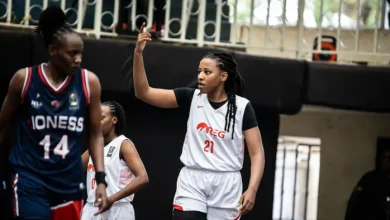From Tandale to Times square: What Diamond must do to bag Music Grammy Award

DAR ES SALAAM: WELL, my dear readers, let us begin by meeting that most common creature of modern society… The armchair critic. You know the type. They sit comfortably at home or in a radio studio, brimming with opinions about everything under the sun yet rarely lifting a finger to actually do something.
They analyse, dissect and condemn from afar, whether it is politics, football, art, or national affairs, armed with the confidence of hindsight and the comfort of distance.
The term paints a perfect picture: Someone reclining in a chair, effortlessly declaring what others should have done better.
While real players in any field grapple with complexity and consequence, our armchair critics faces none.
Their world is one of easy expertise and flawless judgment, where every outcome is obvious and every mistake unforgivable.
And in every society, they thrive. Loud on the radio, fiery on social media, yet curiously missing in action when real work begins.
In Swahili, we know them affectionately as “Wachambuzi “.
Last week, I might have made what could politely be called a “mild assault” upon this beloved Republic of Wachambuzi.
I was tired, bone tired, of hearing the same recycled football talk: Who should have scored, who should have passed, who should have been benched.
But this week, I owe them an apology and a small round of applause.
For once, the Republic of Wachambuzi decided to hang up their imaginary coaching whistles and discuss something else.
For once, football had been benched!
Instead, they were passionately dissecting music and not just any music, the GRAMMYs.
Ah, the Grammys! That glittering altar of global recognition where artists go to be anointed as the chosen few of sound.
Our radio pundits were on fire, voices raised, emotions boiling. The hot topic: “Why have Tanzanian musicians never been nominated for a Grammy?”
What noble curiosity! What patriotic passion! The airwaves shook with righteous indignation.
One mentioned Diamond Platnumz, that human generator of hits. Another invoked Ali Kiba, crooner of endless calm.
Others added Harmonize, Zuchu, Nandy and even Mbosso. All presented as martyrs of a global conspiracy.
According to our panel of self-taught experts, the Grammys had a soft spot for West Africans and a blind spot for East Africans.
One gentleman, speaking with the authority of a man revealing a CIA document, declared: “You see, they favour Nigerians because of population and influence.”
Another countered, “No, it’s because Tanzanians don’t support their own!”
The conversation was loud, passionate and gloriously uninformed.
Meanwhile, somewhere in Dar es Salaam, Tanzania’s very own musicologist, Manju wa Muziki Masoud Masoud, was probably pulling his hair out.
The guy, whose knowledge of the Grammys could make a library feel insecure, almost goes mad whenever his well-researched lectures fall on deaf ears.
One imagines Masoud Masoud pacing like a caged lion at Sabasaba grounds, muttering to himself in a mixture of English and Swahili.
Every time the radio crackles with another halfbaked Grammy theory, he grinds his teeth as he thumps a thick file marked Grammy Guidelines 2025 against his palm.
“Do they even read?” he bellows to no one in particular. “It is not divine intervention! It is FORMALITY, FORMALITY!”
Across the nation, the Republic of Wachambuzi continues with its patented national method: Opinion before fact, volume before research.
So, driven by curiosity (and a touch of irritation), I decided to dig into this Grammy thing myself.
And what I found was not bias, not conspiracy! But good old-fashioned bureaucracy.
You see, the Grammy Awards are not run by angels descending from heaven whispering the names of the deserving.
They’re managed by an American institution called The Recording Academy. A club like body of real music professionals.
And like any club, it has rules, gates, passwords and plenty of forms.
Becoming a member of the Recording Academy is like getting into an elite gym.
You can’t just show up wearing headphones and declare yourself fit for entry. You need receipts, literally.
There are two main doors: Voting Member and Professional Member.
Voting Members are the creators — singers, songwriters, producers, engineers, composers.
To become a voting member, you must have at least six officially released tracks (or one album) that are available in the US market through a recognised distributor such as Apple Music, Spotify, Amazon, or Tidal.
Sorry, your cousin’s flash drive distribution system does not count.
Professional Members are the behind-the-scenes folks, including journalists, promoters, label owners, PR people.
They don’t vote, but they attend events, network, and sip fancy coffee at the Grammys.
To qualify, you must work in a registered media or music company with verifiable presence in the US.
Meaning your work is actually accessible there, not just “shared on Instagram.”
That line, “registered media company with official distribution in the US market,” means your label or publication must legally exist and distribute content through American channels.
If your record label has music on Spotify USA or your media outlet is listed on Google News US, you’re good.
Now, to our beloved Diamond Platnumz, the man who single-handedly turned Tanzanian pop into an export commodity.
What must he (or his tireless team at WCB Wasafi) do to get onto that coveted Grammy list? Let’s go stepby-step:
• Pick the release carefully. The Grammys operate within a fixed eligibility window. Miss the deadline and even a masterpiece becomes ineligible.
The eligibility period for the 2025 Grammys, for instance, ran from September 16, 2023, to August 30, 2024.
That is, if your music wasn’t released and submitted within that window, forget it. At least until September to August next year – for the 2026 Grammys!
• Secure legitimate US distribution. Make sure the song or album is released through a recognised US distributor — Warner, Ingrooves, Empire, TuneCore, DistroKid, etc. Get your ISRC and UPC codes. These are your musical passports.
Simply put, the ISRC (International Standard Recording Code) is like a song’s fingerprint, a unique ID proving ownership of a specific recording.
Every track version, original, remix, live, or acoustic, gets its own ISRC.
It tracks royalties on Spotify, Apple Music, YouTube and radio and is required for streaming distribution, royalty registration (BMI, ASCAP, COSOTA) and Grammy submissions.
Example: TZ-WCB-25-0001 (TZ=Tanzania, WCB=label, 25=year, 0001=track).
And UPC (Universal Product Code) identifies the entire release (album, EP, or single) like a commercial barcode. This is needed for digital stores, chart tracking and accounting.
UPCs are issued automatically by distributors or bought via GS1 (Global Standards 1), the global authority that issues barcodes.
Yes, like the same barcodes you see on every product in a shop, from toothpaste to chapati flour.
And it also is the passport office for your album. Without it, no one abroad will officially know it exists.
Together, ISRC and UPC ensure your music is verifiable, trackable, and professionally recognised.
• Register the company. Either register WCB Wasafi as a proper media entity or partner with an already registered US company to handle submissions.
• Collect your receipts. Have all documents ready; distributor invoices, links, metadata, press mentions and proof of US availability.
• Apply through the Recording Academy portal. Only members or registered companies can submit entries.
• Fill the form like a professional. Category, credits, release date, no typos, no drama. A wrong spelling can send a Bongo hit to the “Best Polka Performance” category.
• Promote, don’t plead. When the song is accepted, launch a classy campaign: “For Your GRAMMY® Consideration – Diamond Platnumz, Best African Music Performance.” No begging, just branding.
• Wait, smile, repeat. The rest is up to voting members who’ll listen, review and decide.
The GRAMMY machine, you see, runs on distribution, documentation, and diligence. Not destiny.
Talent opens the door, but paperwork keeps it open. So next time our Republic of Wachambuzi gathers on air, let them trade guesswork for proper research, passion for procedure and volume for verification.
The day they do that, perhaps Masoud Masoud will finally sleep soundly.
And Diamond Platnumz might just be holding that golden gramophone, rehearsing his speech: “From Tandale to Times Square, Asanteni sana!”





